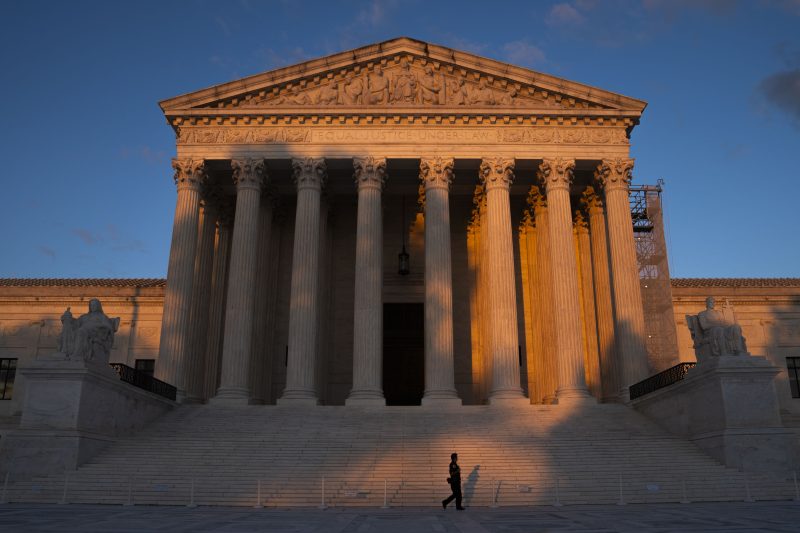**An Analysis of the Impact of Ghost Guns and Transgender Care on the Supreme Court Agenda**
**Ghost Guns: The Rise of Untraceable Firearms**
Ghost guns have been a growing concern in the United States due to their untraceable nature and easy accessibility. These firearms, which are typically homemade or assembled from kits, lack serial numbers and background checks, making them a significant loophole in gun control regulations. The use of ghost guns has been on the rise, with law enforcement agencies expressing alarm over their increasing presence in criminal activities.
One of the key debates surrounding ghost guns is the need for stricter regulations to address this loophole. Proponents of gun control argue that the availability of ghost guns undermines existing laws and makes it easier for individuals who are prohibited from owning firearms to acquire them. Calls for legislative action to regulate the sale and distribution of ghost guns have intensified in recent years, as the potential risks associated with these untraceable firearms become more apparent.
On the other hand, opponents of stricter regulations on ghost guns cite concerns about infringing on Second Amendment rights and argue that existing laws are sufficient to address any misuse of firearms. They contend that imposing additional restrictions on ghost guns would only burden law-abiding citizens and fail to address the root causes of gun violence.
The issue of ghost guns has implications for public safety and law enforcement, as the untraceable nature of these firearms poses challenges in tracking their origins and holding individuals accountable for their misuse. As these weapons continue to proliferate, addressing the regulatory gaps surrounding ghost guns has become a pressing issue for legislators and policymakers at both the state and federal levels.
**Transgender Care: Legal Battles and Healthcare Access**
Transgender rights and healthcare have emerged as contentious issues in recent years, with debates focusing on issues such as gender-affirming care, access to hormone therapy, and discrimination based on gender identity. The Supreme Court’s agenda includes cases that could have far-reaching implications for the rights and healthcare access of transgender individuals, particularly in the realm of healthcare discrimination and insurance coverage.
Legal battles surrounding transgender care have centered on the interpretation of existing anti-discrimination laws, such as Title VII of the Civil Rights Act of 1964, which prohibits discrimination based on sex. Advocates for transgender rights argue that this protection extends to gender identity and expression, and that denying access to gender-affirming care constitutes unlawful discrimination.
Conversely, opponents of expanding protections for transgender individuals raise concerns about the impact on religious freedoms and medical ethics. They argue that forcing healthcare providers to offer gender-affirming care against their beliefs or convictions could infringe on their rights and autonomy. Additionally, disputes over insurance coverage for transgender healthcare treatments have added another layer of complexity to the debate, with questions arising about the extent to which insurers should be required to cover such services.
The Supreme Court’s involvement in cases related to transgender care underscores the importance of clarifying the legal framework surrounding these issues and ensuring equitable access to healthcare for all individuals, regardless of their gender identity. As the nation grapples with evolving perspectives on gender and healthcare, the decisions made by the highest court in the land will have a lasting impact on the rights and protections afforded to transgender individuals across the country.
**Conclusion**
In conclusion, the inclusion of ghost guns and transgender care on the Supreme Court agenda reflects the complex legal and social challenges facing the United States today. The debates surrounding these issues highlight the need for comprehensive and nuanced approaches to address emerging concerns related to public safety, healthcare access, and individual rights. By grappling with these contentious topics, the Supreme Court has the opportunity to shape the legal landscape and advance the cause of justice and equality for all individuals. As the nation awaits the outcomes of these cases, the implications for policy, regulation, and societal norms are sure to reverberate for years to come.


























